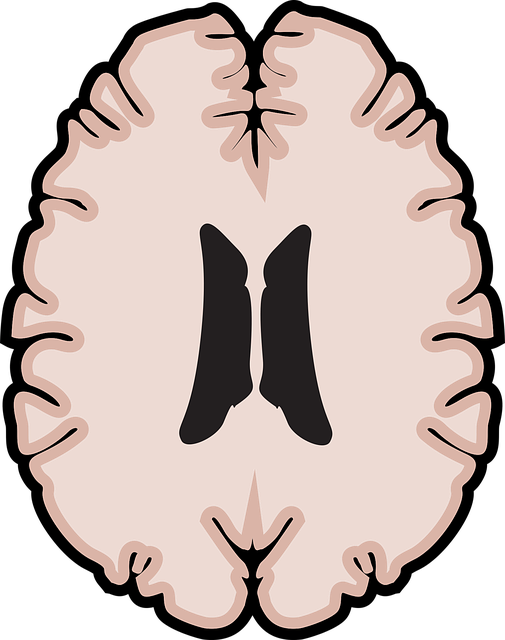RFM (Recovery-Focused Goals and Motivation) is a superior chronic illness therapy approach that shifts the focus from illness to recovery, empowering patients through Empathy Building Strategies and Mind Over Matter principles. This method integrates cognitive reframing, mindfulness meditation, and positive self-talk to build resilience, reduce symptoms like depression and anxiety, prevent burnout, and foster well-being. Structured assessments, safe communication spaces, and consistent daily practice enable individuals to monitor progress and gain a sense of agency in their mental wellness journey. Regular evaluations measure the impact of RFM on improved patient outcomes, including reduced chronic illness symptoms and enhanced coping mechanisms. Cultural competency training ensures tailored, supportive care for diverse patients.
“Discover how Resilience, Flexibility, and Mobility (RFM) exercises can revolutionize superior chronic illness therapy. This comprehensive guide delves into the essential role of RFM in managing chronic conditions, offering a holistic approach to patient care. Learn from our step-by-step implementation strategy, designed to empower healthcare professionals and patients alike. By the end, you’ll understand how to measure success and evaluate the profound impact of RFM on improved patient outcomes.”
- Understanding RFM and Its Role in Chronic Illness Management
- Implementing Resilience-Building Exercises: A Step-by-Step Guide
- Measuring Success: Evaluating the Impact of RFM on Patient Outcomes
Understanding RFM and Its Role in Chronic Illness Management

Understanding RFM (Recovery-Focused Goals and Motivation) is a pivotal step in enhancing chronic illness management. This approach shifts the focus from the illness itself to an individual’s capacity for recovery, resilience, and personal growth. By employing RFM techniques, healthcare professionals can empower patients to set meaningful goals aligned with their aspirations, fostering a sense of purpose and motivation.
Incorporating Empathy Building Strategies and Mind Over Matter Principles into chronic illness therapy offers a superior approach. It encourages patients to reframe their mindset, promoting a positive outlook that challenges the limitations often associated with long-term conditions. This strategy is particularly effective in managing symptoms like depression and anxiety, providing tools for prevention and overall well-being.
Implementing Resilience-Building Exercises: A Step-by-Step Guide

Implementing resilience-building exercises is a transformative process that can significantly enhance an individual’s ability to cope with life’s challenges, especially when navigating a superior chronic illness. It involves a structured approach to fostering mental wellness and fortifying one’s psychological shield against adverse events. Here’s a step-by-step guide to get started:
1. Assess Individual Needs: Begin by evaluating the participant’s current mental state, previous experiences with stress or trauma, and their willingness to engage in resilience training. This assessment helps tailor exercises to address specific needs, ensuring that depression prevention strategies are inclusive and effective.
2. Choose Evidence-Based Exercises: Select activities backed by scientific research on crisis intervention guidance. Techniques such as cognitive reframing, mindfulness meditation, and positive self-talk have proven beneficial in building resilience. Incorporate these into a structured program to offer a comprehensive toolkit for participants.
3. Create a Safe Space: Establish an environment free from judgment where individuals feel safe to explore their emotions. Encourage open communication and ensure confidentiality to foster trust. This supportive atmosphere is crucial for participants to embrace vulnerability, a key aspect of building resilience.
4. Gradual Exposure: Introduce exercises gradually, starting with simpler techniques like deep breathing and progressive muscle relaxation. Build up to more complex activities like visualizing positive outcomes or practicing problem-solving skills. This incremental approach allows individuals to develop confidence and ensures they can manage potential emotional triggers effectively.
5. Regular Practice: Consistency is key. Encourage daily practice of resilience-building exercises, even for short periods. Regular engagement strengthens neural pathways associated with positive coping mechanisms, making them more accessible during stressful situations.
6. Monitor Progress: Provide opportunities for self-reflection and offer feedback to participants. Help them track their emotional states and the effectiveness of different exercises. This process empowers individuals to identify what works best for them, fostering a sense of agency in their mental wellness journey.
Measuring Success: Evaluating the Impact of RFM on Patient Outcomes

Evaluating the impact of RFM (Resilience, Flexibility, and Mindfulness) on patient outcomes is a critical step in understanding its effectiveness as a therapeutic approach. Healthcare providers can measure success by assessing improvements in various areas, such as reduced symptoms of chronic illnesses, enhanced coping mechanisms, and increased overall well-being. Regular assessments before, during, and after the RFM program can provide valuable insights into the transformation of patient lives.
The superior chronic illness therapy offered through RFM can lead to notable changes in mental health, including burnout prevention and stigma reduction efforts. By fostering cultural competency training for healthcare providers, these programs ensure that patients receive supportive care tailored to their unique needs. This holistic approach not only improves patient outcomes but also strengthens the provider-patient relationship, creating a more nurturing and effective healthcare environment.
Resilience is a powerful tool in managing chronic illnesses, and integrating Resistance from Within (RFM) exercises into treatment plans offers a superior chronic illness therapy approach. By understanding RFM’s role and implementing practical resilience-building strategies, healthcare professionals can empower patients to navigate their health journeys with enhanced coping mechanisms and improved outcomes. Measuring the impact through evaluation allows for continuous improvement, ensuring that this innovative method of care provides lasting benefits for those living with chronic conditions.














